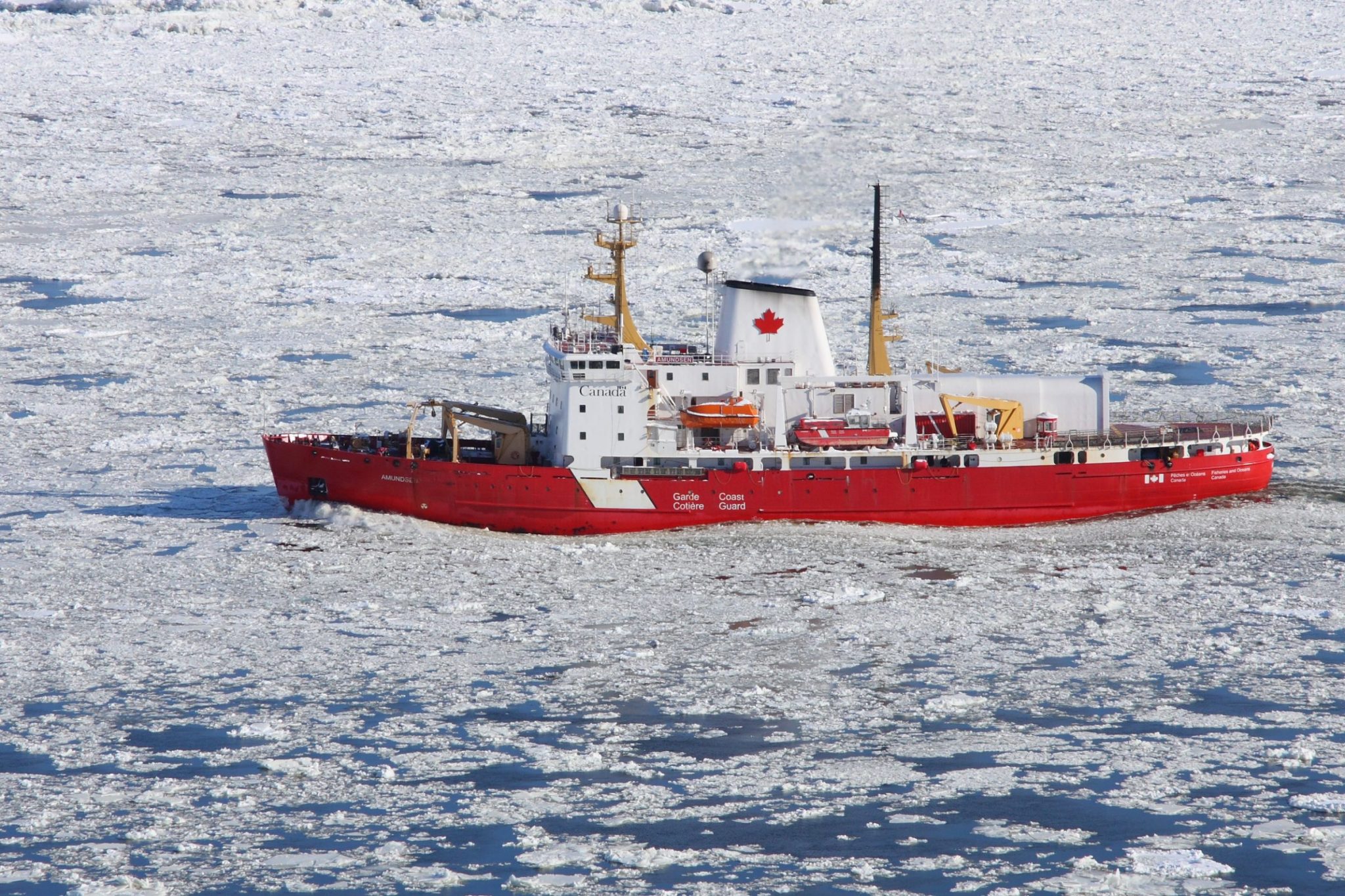The coronavirus pandemic has shortened CCGS Amundsen’s Arctic research season
“We’re going to be as safe as possible and try our best to do science.”

The CCGS Amundsen, Canada’s preeminent research icebreaker, will be plying Arctic waters again this coming summer, but its season will be shorter and will look very different from previous years due to the ongoing pandemic.
Originally scheduled to depart from its berth in Quebec City on July 3 for a 114-day voyage, the vessel will now set sail two weeks later.
“We were doing the whole Canadian Arctic archipelago, the Beaufort Sea, Labrador Sea, Baffin Bay, so it was a huge expedition,” said Camille Wilhelmy, logistics and administrative coordinator for Amundsen Science.
“This year was quite ambitious at first.”
Now, that won’t be the case.
Since being launched in 2003, the Amundsen’s mission has been to provide cutting-edge research capacity to Canadian scientists and their international collaborators in northern seas and coastal communities.
This year, two aspects of that mission will be missing: international collaborators and coastal communities.
The Beaufort Sea portion of the trip, an entire leg of the original expedition, has been pushed to next year in part because the international university program slated to participate in it can no longer do so.
Visits to communities have also been removed from the expedition’s itinerary, and that change poses significant logistical challenges.
“Usually in between legs of 28 days … the whole science crew and the Coast Guard crew changes,” said Wilhelmy.
Normally that’s done in communities like Pond Inlet that are along the voyage route.
This season all crew changes will likely be done in St. John’s, meaning that rather than following a single linear route through the Arctic, the Amundsen will conduct shorter month-long forays into the Arctic.
The pandemic has also caused other logistical issues for the Amundsen and its teams of researchers.
Some university programs don’t have access to their labs, materials and equipment, which is preventing them from getting ready for the expedition, says Wilhelmy.
The Amundsen’s new remotely operated vehicle that was slated to be ready earlier in the expedition has also been delayed due to the pandemic.
According to Wilhelmy, instead of being tested in the waters off Pond Inlet, it will now undergo its sea trials later in the season in the St. Lawrence River.
But like all of these plans, that too could change.
“Everything is really moving fast,” said Wilhelmy.
“We really want to make everyone happy.”
Her other priority is safety.
While removing the community component of the expedition protects residents of the North, there’s still the challenge of protecting members of the scientific teams and crew.
Currently, two options are being explored.
The first would see all incoming scientists and crew members spend two weeks in an isolation hub before boarding the vessel, similar to the protocols being employed by the Government of Nunavut for residents returning to the territory.
The second option is testing everyone before boarding using a private clinic.
“We’re going to make sure that there’s no risk for anyone, not a scientist, not the crew on board, not the communities,” said Wilhelmy.
“We’re going to be as safe as possible and try our best to do science.”